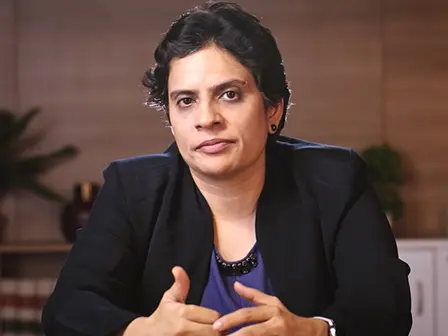Cracking the Advocate-on-Record Examination
This course has been designed and developed to help candidates prepare for the Advocate-on-Record (AOR) examination, conducted every year by the Supreme Court of India. In this course, Mr Namit Saxena, second rank holder in the 2019 AOR examination, has discussed the four papers of the exam, eligibility criteria, preparation techniques, examination pattern, syllabus, and tips and tricks for taking the AOR examination.
The focus of this course is to study the four subjects in the AOR examination syllabus, namely, Practice and Procedure, Drafting, Leading Cases and Professional Ethics.
You may also be interested in our Flagship Course on AOR Exam by Dr Charu Mathur, AOR, SC.

How to Crack the AOR Exam?
By: Dr Charu Mathur, AOR SC.
Take this comprehensive and meticulously curated LIVE crash course designed to equip you with the necessary knowledge, strategies, and skills to excel in the AOR Examination.

Law is one of the great healing professions, while medicine heals the body and clergy heals the souls, the law heals societal rifts.
Steven Keeva- I. EXAM NOTIFICATION
- AOR Exam Notification
- 1. Introduction
- 1.1 Welcome
- 2. Eligibility Criteria and Pattern of the Examination
- 2.1 Who is an advocate-on-record?
- 2.2 Eligibility criteria
- 2.3 Exemptions
- 2.4 Pattern of the examination
- 2.5 Tips for preparation
- 3. Paper 1: Preparing for Practice and Procedure
- 3.1 Preparation for practice and procedure
- 3.2 Origins of the Supreme Court
- 3.3 The Federal Court
- 3.4 Constituent Assembly and dawn of the Constitution
- 3.5 The Supreme Court
- 3.6 Appellate jurisdiction of the Supreme Court
- 3.7 Original jurisdiction
- 3.8 Advisory jurisdiction
- 3.9 Review and curative petition: Inherent and plenary jurisdiction
- 3.10 Contempt jurisdiction
- 3.11 Jurisdiction under Supreme Court (Decrees and Orders) Enforcement Order, 1954
- 3.12 Language
- 3.13 Supreme Court (Enlargement of Criminal Appellate Jurisdiction) Act, 1970
- 3.14 Article 136 and the doctrine of merger
- 3.15 Article 137 and application for modification/ clarification
- 3.16 Matters of public interest
- 3.17 Limitation
- 3.18 Court fees
- 3.19 Answering Practice and Procedure paper
- 4. Paper 2: Drafting
- 4.1 Drafting preliminaries
- 4.2 Drafting rules for executing vakalatnama
- 4.3 General rules for drafting/filing
- 4.4 Answering the Drafting paper
- 5. Paper 3: Professional Ethics and Advocacy
- 5.1 Preparing for Professional Ethics and Advocacy
- 6. Paper 4: Leading Cases
- 6.1 Preparing for Leading Cases
- 7. Conclusion
- 7.1 Conclusion
- 8. Annexure A: 2021 Full Text of Revised List of Leading Cases
- AOR Exam, 2021 Revised full text of leading cases
WHY TAKE THIS COURSE?
Advocate-on-Record (AOR) is one of the toughest examinations in the fields of law, attempted by experienced professionals. Every year, around 1000 aspirants with over 5 years of experience as advocates write the exam. The passing grade in the examination in the initial years was comparatively very less. Gradually, the number of aspirants who clear the exam has increased with around 20% of candidates clearing the same in 2019.
This course comprises the criteria for appearing in the examination, examination analysis and paper-wise analysis and tips. The course will give you the edge that you need to succeed.
Instructors

Namit Saxena
Namit Saxena is an Advocate-on-Record, Supreme Court of India. He practises as an advocate before the Supreme Court of India, Delhi High Court, DRT, DRAT, NCLT, NCLAT and other Tribunals and Courts. After graduating in law from Dr Ram Manohar Lohiya National Law University, Lucknow in 2013, Namit was selected to work as a Law Clerk cum Research Associate at the Supreme Court of India and was attached with Hon'ble Mr Justice Kurian Joseph for a period of one year. After finishing his clerkship at the Supreme Court, he decided to join the bar and was offered a position at the chambers of the Solicitor General for India, Mr Ranjit Kumar.

